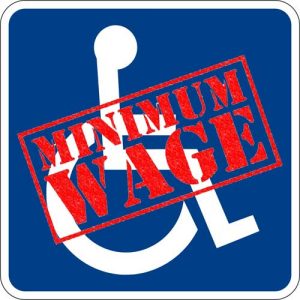 JUNEAU, Alaska— Following a regulatory change that went into effect Friday, Alaska employers are no longer allowed to pay less than minimum wage to workers who experience disabilities. In repealing 8 AAC 15.120, Alaska joins New Hampshire and Maryland as the first states in the nation to eliminate payment of subminimum wages for persons with disabilities.
JUNEAU, Alaska— Following a regulatory change that went into effect Friday, Alaska employers are no longer allowed to pay less than minimum wage to workers who experience disabilities. In repealing 8 AAC 15.120, Alaska joins New Hampshire and Maryland as the first states in the nation to eliminate payment of subminimum wages for persons with disabilities.
An exemption from paying minimum wage to persons with disabilities has existed for many years, beginning at the federal level with the Fair Labor Standards Act of 1938 and in Alaska regulations since 1978. Historically, minimum wage exemptions were considered necessary to help people with disabilities gain employment. Experience over the past two decades has shown that workers with disabilities can succeed in jobs earning minimum wage or more.
“Workers who experience disabilities are valued members of Alaska’s workforce,” said Department of Labor and Workforce Development Acting Commissioner Greg Cashen. “They deserve minimum wage protections as much as any other Alaskan worker.”
The Alaska Department of Labor and Workforce Development received written comments expressing support for repealing the regulation that allowed the minimum wage exemption from the Governor’s Council on Disabilities and Special Education, the State Vocational Rehabilitation Committee, the Statewide Independent Living Council, and the Alaska Workforce Investment Board.[xyz-ihs snippet=”Adsense-responsive”]The elimination of the minimum wage exemption brings employment practices into alignment with Alaska Employment First Act of 2014, which requires vocational services help people with disabilities to become gainfully employed at or above the minimum wage.
Source: State of Alaska






